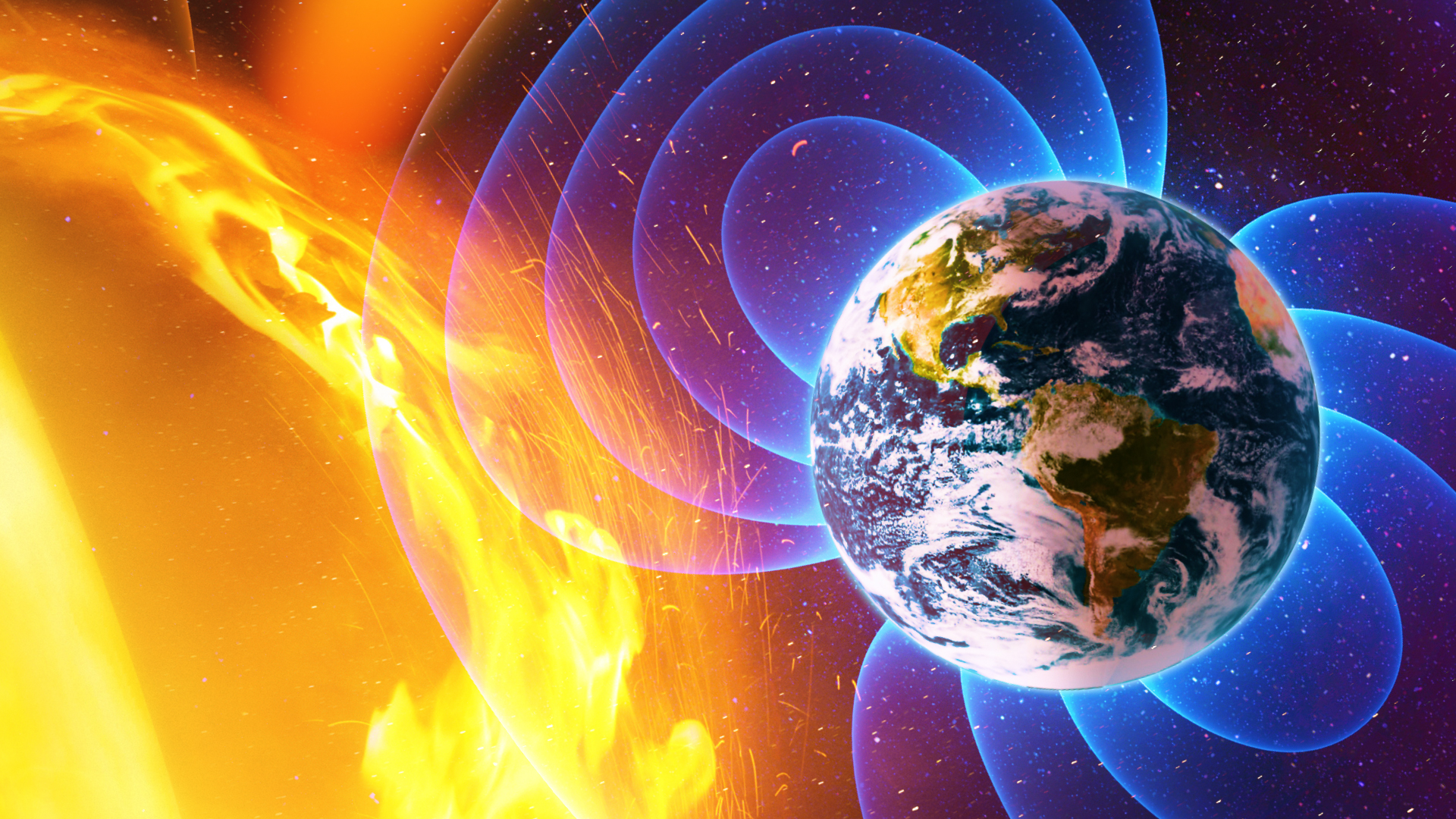- Earth’s magnetic field is what protects our planet from harmful space radiation.
- But our protective shield might soon go into a transformation that could threaten the lives on Earth.
- This video shows what will happen when Earth’s magnetic poles flip.
Following is a transcript of the video.
Did you know that Earth has two North Poles? There’s the geographic North Pole, which never changes. And there’s the magnetic North Pole, which is always on the move. And right now it’s moving faster than usual.
Over the past 150 years, the magnetic North Pole has casually wandered 685 miles across northern Canada. But right now it’s racing 25 miles a year to the northwest.
This could be a sign that we’re about to experience something humans have never seen before: a magnetic polar flip. And when this happens, it could affect much more than just your compass.
Alanna Mitchell: Right now on the surface of the planet, it looks like it's just a bar magnet. Our compasses are just pointing to one pole at a time because there's a dominant two-pole system.
But sometimes, Earth doesn't always just have a single magnetic North and South Pole. Evidence suggests that, for hundreds to thousands of years at a time, our planet has had four, six, and even eight poles at a time. This is what has happened when the magnetic poles flipped in the past. And when it happens again, it won't be good news for humans.
Now you might think, eight poles must be better than two. But the reality is that: Multiple magnetic fields would fight each other. This could weaken Earth's protective magnetic field by up to 90% during a polar flip.
Earth's magnetic field is what shields us from harmful space radiation which can damage cells, cause cancer, and fry electronic circuits and electrical grids. With a weaker field in place, some scientists think this could expose planes to higher levels of radiation, making flights less safe.
This could also disrupt the internal compass in many animals who use the magnetic field for navigation. Even more extreme, it could make certain places on the planet too dangerous to live. But what exactly will take place on the surface is less clear than what will undoubtedly happen in space.
Satellites and crewed space missions will need extra shielding that we'll have to provide ourselves. Without it, intense cosmic and solar radiation will fry circuit boards and increase the risk of cancer in astronauts.
Our modern way of life could cease to exist. We know this because we're already seeing a glimpse of this in an area called the South Atlantic Anomaly. Turns out, the direction of a portion of the magnetic field deep beneath this area has already flipped! And scientists say that's one reason why the field has been steadily weakening since 1840.
As a result, the Hubble Space Telescope and other satellites often shut down their sensitive electronics as they pass over the area. And astronauts on the International Space Station reported seeing a higher number of bright flashes of light in their vision, thought to be caused by high-energy cosmic rays that the weaker field can't hold back.
Since experts started measuring the Anomaly a few decades ago, it has grown in size and now covers a fifth (20.3%) of Earth's surface, with no signs of shrinking anytime soon. This is so extreme that it could be a sign we're on the brink of a polar flip, or we may already be in the midst of one!
But scientists remain skeptical, mainly because ...
Mitchell: They don't know. The last time the poles reversed was 780,000 years ago so it's not like we have a record for this.
Turns out 780,000 years is over double the time Earth usually takes between flips.
Mitchell: In the past 65 million years since the last mass extinction there have been reversals roughly every 300,000 years.
So what gives? Well, scientists haven't figured it out yet. It's unnerving to think that our modern way of life - banking, the stock exchange, missile tracking, GPS - relies on the outcome of something we can neither predict, nor control. One study went so far as to estimate that a single, giant solar storm today could cost the US up to $41.5 billion a day in damages.
And that's with Earth's magnetic field at its current strength. It's frightening to imagine the devastation a storm would bring to an Earth with a magnetic field only 10% as strong.
We may not be able to stop a polar flip, but we can at least start to take measures to minimize the damage. The first step? Figure out what's going on with this whacky field.
On the hunt are the European Space Agency's SWARM satellites, which are collecting the most precise data on the strength of Earth's magnetic field. Right now, they could be our greatest hope for solving this riddle.
EDITOR'S NOTE: This video was originally published on April 9, 2018.
